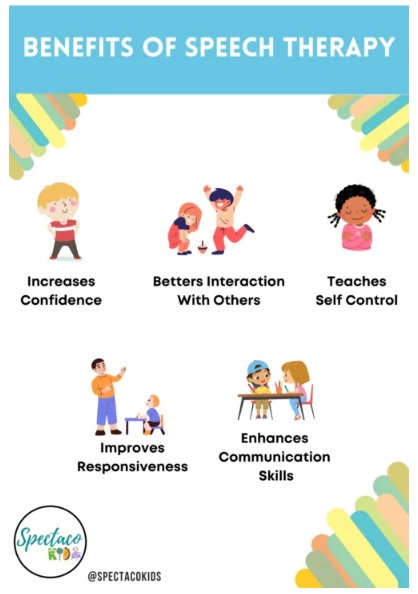
Speech and language therapy (SLT) is crucial in helping individuals with communication difficulties. It spans a wide range of challenges, from speech sound disorders to language impairments, fluency difficulties, and even cognitive communication issues. The traditional approaches in SLT have been highly successful, but recent insights highlight the significance of integrating personal interests into therapy sessions to further enhance its effectiveness. Read on to explore the impact of personal interests on SLT outcomes and effective techniques for better communication to harness these interests.
The Power of Personalization in Speech and Language Therapy
Every individual is unique, and their interests shape how they engage with the world. Whether it's a child fascinated by dinosaurs or an adult passionate about cooking, these interests provide a gateway to motivation and active participation. Traditional therapy methods can sometimes feel rigid or disconnected from the client's everyday life, but by personalizing the process, therapists can foster a sense of ownership and enthusiasm, which is crucial for learning.

Motivation, driven by a person's interests, can significantly increase the likelihood of achieving therapeutic goals. Personalizing therapy makes clients more likely to attend sessions consistently, practice outside of therapy, and remain committed to long-term goals. The result is faster progress, better retention of skills, and a more positive therapeutic experience.
Children and Engagement
For children undergoing speech and language therapy, play is an essential part of their development. When therapy incorporates their interests, it can feel more like play than work. This taps into the child's natural enthusiasm, making them more willing to engage in activities that improve their communication skills.
Using toys, games, or themes related to a child’s favorite activities can also provide a context that is familiar and meaningful to them. This type of contextual learning allows children to apply their new skills in real-world settings, which enhances the generalization of these skills beyond the therapy room.
How Personal Interests Improve Therapy Outcomes
Incorporating personal interests into SLT can lead to several key benefits, both for the client and the therapist:
1. Increased Motivation
Clients are more likely to engage when the therapy revolves around something they care deeply about. A child who loves animals may show more enthusiasm for articulation practice when it involves naming different types of animals.
For adults, discussing a favorite hobby, such as cooking or painting, can make language exercises more interesting. Motivation is critical because it drives the effort and practice needed to master new skills.
2. Faster Progress
When clients are motivated, they are more likely to practice outside of therapy sessions. Personal interests can act as a vehicle for continuous learning and reinforcement of skills.
For example, a child interested in space may start reading more books about the planets or talking more with family members about rockets, which provides ongoing practice in a natural setting. This consistent engagement helps accelerate progress toward therapeutic goals.
3. Enhanced Generalization
Generalization refers to the ability to apply learned skills in new or different environments. Personal interests provide a bridge to the real world, making it easier for clients to transfer their new skills beyond the therapy room.
For example, a person who practices speaking in the context of their favorite sports activity will find it easier to apply those communication skills when watching a game with friends. When therapy is connected to activities that are naturally occurring in the client’s life, generalization happens more naturally.
4. Stronger Therapeutic Alliance
The therapeutic relationship between the client and the therapist is foundational to the success of therapy. When therapists show genuine interest in what their clients care about, it fosters trust and rapport.
This strong bond makes clients feel more comfortable, understood, and willing to take risks, which is crucial for communication development. A positive therapeutic relationship can lead to more open communication, better feedback, and a collaborative atmosphere, all of which are essential for achieving goals.
Practical Strategies for Speech-Language Pathologists
SLPs who want to harness personal interests in therapy can do so by adopting a few practical strategies:
1. Client-Centered Assessments
From the outset, it’s important to conduct thorough assessments that identify not only the speech and language needs of the client but also their interests, hobbies, and daily routines.
For children, this might involve talking with parents, caregivers, or teachers about what excites the child. For adults, therapists should take time to discuss what they enjoy, their professional goals, and any hobbies they want to continue pursuing.
2. Incorporate Interests Into Therapy Goals
Once the therapist has a good understanding of the client's interests, they can integrate these into the therapy goals. This means designing activities, exercises, and tasks that revolve around these interests.
For example, if a child loves music, the therapist might use songs or rhythm-based exercises to teach speech sounds. If an adult enjoys cooking, the therapist could focus on conversational skills that would be useful during social gatherings like dinner parties.
3. Use of Technology and Multimedia
Technology can be a powerful tool in tailoring therapy to personal interests. For example, apps and games can be customized to align with the client’s favorite activities. Interactive software that incorporates personal interests like video games, storytelling, or virtual environments can make therapy more dynamic and enjoyable.
For adults, using online resources related to their hobbies can help them practice reading, speaking, or comprehension in a relevant context.
4. Collaboration with Family and Caregivers
Family members and caregivers are often key players in the success of speech and language therapy. By involving them in the process, therapists can ensure that personal interests are reinforced outside of therapy sessions.
Parents can be encouraged to engage in conversations about their child’s favorite topics, while caregivers can create opportunities for adults to practice communication in activities they love, such as cooking a meal or watching a sporting event.
Bottom Line
Personalizing speech and language therapy by incorporating student’s interests can significantly improve engagement, motivation, and progress. After completing special education courses, whether working with children or adults, SLPs can leverage hobbies, passions, and daily routines to create therapy sessions that feel meaningful and relevant.
We believe education should be accessible for everyone. That’s why we don’t charge for our blogs. Find the right course that will help you in your career with us, contact us at - 6292150868. You can mail us at act@asiancollegeofteachers.com
Get In Touch
UK – Registered OfficeAsian College Of Teachers Ltd (UK)
27, Old Gloucester Street, London – WC1N 3AX, UK
UK Toll Free: 0-808-189-1203
www.asiancollegeofteachers.co.uk
All SEN Courses are designed, developed and created by Asian College of Teachers Ltd, United Kingdom. These courses are certified by CPD Certification Service UK and endorsed by NCC Education, UK, and Short Courses from CACHE, UK through Laser Learning UK.
Asian College of Teachers (ACT) undertakes a continuous review of its teacher training courses to ensure imparting high quality education. However, there might be circumstances outside of ACT’s control which might affect its stakeholders like if you are planning to teach in a different country, applying for a teaching license, pursuing higher studies or trying to get the certificate approved by the Ministry of Education (MoE) of a particular country then you can do so with the certificate issued by Asian College of Teachers (ACT). However, each country’s Ministry of Education (MoE) or educational bodies set certain standards that are indispensable for the pursuit of higher studies or teaching in schools in that country. So it can be a possibility that you may be able to use the certificate for higher studies or teaching purposes in one country and not in another. Therefore, we strongly recommend that you investigate thoroughly and check with the relevant authorities regarding the acceptance of the certificate issued by us before you enrol on a particular course. ACT strives to offer high-quality education and its certificates can be valuable for various purposes internationally, but still it is crucial for individuals to verify the specific recognition of the certificate in the country they intend to use it, especially for formal education or professional licensing purposes. This approach ensures that the stakeholders make informed decisions regarding their educational and career paths.
© 2024 Asian College of Teachers. All Rights Reserved. Asian College Of Teachers is a trading brand of TTA Training Pvt. Ltd (India) - CIN U80902WB2016PTC215839, Asia Teachers Training Co., Ltd (Thailand) - Registration No. 0105558193360, Asian College Of Teachers Ltd (UK) - Company Number 9939942 & Asian College Of Teachers LLC, (USA) - Federal Tax Identification Number 30-1261596
Designed by kreativewebtech